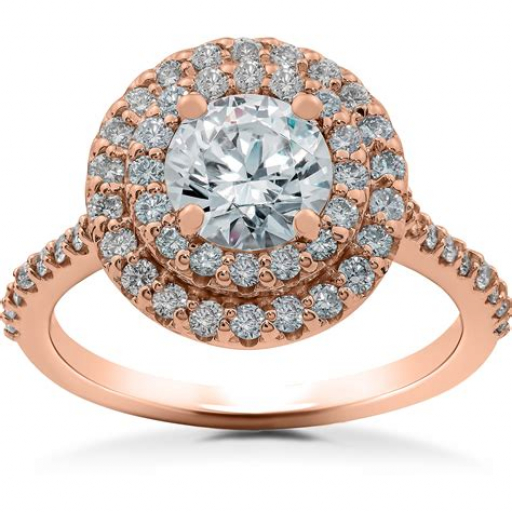Lab created diamonds are becoming increasingly popular in the jewelry industry. They are a great alternative to natural diamonds, and they offer a lot of benefits. In this article, we will discuss everything you need to know about engagement ring lab created diamonds.
Lab created diamonds are made in a laboratory setting, and they are designed to have the same chemical and physical properties as natural diamonds. They are also known as synthetic diamonds, cultured diamonds, or man-made diamonds. They are created using advanced technology that replicates the natural diamond-growing process. The result is a diamond that is virtually identical to a natural diamond, but without the environmental and ethical concerns that come with mining natural diamonds.
One of the biggest benefits of lab created diamonds is that they are more affordable than natural diamonds. They can cost up to 40% less than natural diamonds, which makes them a great option for people who are on a budget. They are also more environmentally friendly, as they do not require any mining. This means that they have a much smaller carbon footprint than natural diamonds.

What are the benefits of engagement ring lab created diamonds?
There are many benefits to choosing an engagement ring with a lab created diamond. Here are some of the most important:
1. Affordability
Lab created diamonds are much more affordable than natural diamonds. They can cost up to 40% less than natural diamonds, which makes them a great option for people who are on a budget. This means that you can get a bigger diamond for your money, or you can save money and put it towards other things, like your wedding or honeymoon.
2. Environmental friendliness
Lab created diamonds are much more environmentally friendly than natural diamonds. They do not require any mining, which means that they have a much smaller carbon footprint than natural diamonds. This is because mining natural diamonds requires a lot of energy and resources, and it can cause a lot of damage to the environment.
3. Ethical concerns
Lab created diamonds are also more ethical than natural diamonds. This is because natural diamonds are often mined in countries where workers are paid very low wages and work in dangerous conditions. There are also concerns about child labor and human rights abuses in the diamond mining industry. By choosing a lab created diamond, you can be sure that you are not supporting these practices.
4. Quality
Lab created diamonds are of the same quality as natural diamonds. They have the same chemical and physical properties, and they are just as durable and long-lasting. This means that you can be sure that your engagement ring will last a lifetime.
How are engagement ring lab created diamonds made?
Lab created diamonds are made using advanced technology that replicates the natural diamond-growing process. They are created in a laboratory setting, and they are designed to have the same chemical and physical properties as natural diamonds. The process involves placing a small diamond seed in a chamber that is filled with a special type of gas. The gas is then heated to an extremely high temperature, which causes the diamond seed to grow into a larger diamond. The process can take anywhere from a few weeks to a few months, depending on the size of the diamond.
Once the diamond has been grown, it is cut and polished in the same way as a natural diamond. This means that it has the same brilliance, fire, and sparkle as a natural diamond.
Are engagement ring lab created diamonds right for you?
If you are looking for an engagement ring that is affordable, environmentally friendly, and ethical, then a lab created diamond might be the right choice for you. They are also of the same quality as natural diamonds, so you can be sure that your engagement ring will last a lifetime.
Overall, engagement ring lab created diamonds are a great option for anyone who is looking for a beautiful, high-quality diamond that is also affordable, environmentally friendly, and ethical.
